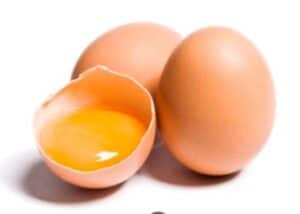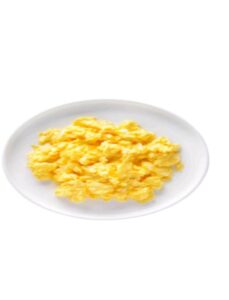Introduction
Egg preparation, egg as a good source of protein and other nutrients, has been an object of controversy in the culinary and dietetic field. In our previous post, we delved into the health benefits of eggs. However, in this article, we will concisely discuss the nutrient contents of eggs, different methods of preparing them, and the effects of these preparation methods on the nutrient content. Eggs play an important role in a healthy diet for several reasons.
First, they’re a rich source of protein, which is essential for building and repairing body tissues. Eggs increase healthy cholesterol levels (HDL), reduce the incidence of cancer, improve eye health, lower the risk of heart disease, and are good for weight management. They are recommended during pregnancy for promoting prenatal bone development and help boost the immune system. Eggs also contain various other nutrients, such as vitamin A, vitamin D, and choline. The high choline content in eggs may help promote brain health. Plus, they’re relatively inexpensive and can be prepared in many ways, making them a versatile and affordable option for a healthy diet.
Eggs can be prepared in different ways to suit individual taste buds, increase nutritional values, and enhance digestibility. It is noteworthy that the sizes, shapes, and methods of preparation of eggs can greatly affect their nutritional value.
Egg preparation and its effects on the nutritional profile
Nutritional Profile of Raw Eggs (52 grams):

- Calories: 72 kcal
- Protein: 6 grams
- Carbs: 0.6 grams
- Fat: 5 grams
- Saturated Fat: 1.6 grams
- Cholesterol: 185 mg
Table of Contents
Boiled Eggs
These are the easiest to prepare and the best method of getting your eggs done. Boiled eggs are achieved by cooking whole eggs on medium heat for 10 to 15 minutes.
Recipe:
- Whole eggs
- Pot
- Water
- Heater/cooker
- Pinch of salt
Instructions:
- Fill the pot with water to ¾ full.
- Add a pinch of salt.
- Place on a heater.
- Gently place your egg in the pot.
- Light the heater and cook on medium heat for 6 to 12 minutes.
- Turn off the heat and decant the water.
- Pour cool water over the eggs for easy shelling.
- Your egg is ready to be enjoyed.
Nutritional Value of Boiled Eggs:
- Calories: 77
- Protein: 6 grams
- Carbs: 0.6 grams
- Fat: 5 grams
- Saturated Fat: 1.6 grams
- Cholesterol: 212 mg
The nutritional value of eggs is not significantly affected by whether they are soft-boiled or hard-boiled. However, soft-cooked eggs have a tendency to harbor salmonella.
Fried Eggs
This is done by frying the eggs in an oil-greased pan. Eggs are cracked into a hot pan that contains a thin layer of cooking fat.
Recipe for Fried Eggs:
- 1 large egg
- 2 tablespoons olive oil, vegetable oil, butter, bacon grease, or other fat
- Salt, to taste
- Freshly ground black pepper, to taste
- A non-stick pan
- A cooker
Instructions:
- Heat a pan over medium-high heat and add a small amount of oil or butter.
- Once the pan is hot, crack the egg into the pan.
- For sunny-side up, let the egg cook until the white is set and the edges are crisp, about 3–4 minutes.
- For over-easy, cook for about 1–2 minutes on the first side, then flip and cook for another 1–2 minutes.
Nutritional Profile of Fried Eggs:
- Calories: 100
- Protein: 8 grams
- Fat: 8 grams
- Saturated Fat: 2 grams
- Carbohydrates: 0 grams
- Cholesterol: 215 mg
Frying an egg does change its nutritional value, but not all negatively. Frying an egg in oil or butter can actually increase the amount of fat-soluble vitamins, like vitamins A and E, that are present in the egg. However, the amount of cholesterol in the egg does increase slightly when it’s fried. Some heat-labile vitamins can be lost during frying, but overall, fried eggs can still be a healthy part of a balanced diet.
Poached Eggs
These are eggs that have been cooked by submerging them in gently simmering water. The heat of the water cooks the egg whites, while the yolks remain runny. Poached eggs have a delicate, creamy texture and can be served on their own or on top of other dishes.
Recipe for Poached Eggs:
- Fill a medium saucepan with water and bring it to a simmer over medium heat.
- Crack an egg into a small bowl.
- Carefully slide the egg into the simmering water.
- Cook the egg for 3–4 minutes, or until the white is set and the yolk is still runny.
- Remove the egg from the water with a slotted spoon.
- Serve.
Nutritional Profile of Poached Eggs:
- Calories: 77
- Protein: 7 grams
- Fat: 5 grams
- Saturated Fat: 1.5 grams
- Carbohydrates: 0 grams
- Cholesterol: 212 mg
Poaching eggs has a few benefits in terms of nutritional value due to the low cooking temperature. Poached eggs retain more of their water-soluble vitamins, like vitamin C and B vitamins. They also retain more antioxidants, like lutein and zeaxanthin. Because poached eggs aren’t cooked in oil, they have less fat and fewer calories than fried eggs. Poaching is a great way to cook eggs while preserving their nutritional value.
Scrambled Eggs
Scrambled eggs are made by beating eggs and cooking them in a pan until they’re soft and fluffy. They can be cooked with or without the addition of milk, cream, or other ingredients. When cooked properly, scrambled eggs should be light and fluffy with small curds and can be enjoyed on their own or as part of a healthy meal.
Recipe for Scrambled Eggs:
- Crack two large eggs into a bowl.
- Add a dash of salt and pepper.
- Beat the eggs with a fork until they’re well-combined.
- Heat a non-stick skillet over medium heat.
- Add a small amount of oil or butter to the pan.
- Pour the beaten eggs into the pan.
- Cook, stirring occasionally, until the eggs are set to your desired consistency.
- Serve hot with your favorite toppings.
Nutritional Profile of Scrambled Eggs:
- Calories: 121
- Protein: 12 grams
- Fat: 10 grams
- Carbohydrates: 1 gram
- Sugar: 0 grams
- Fiber: 0 grams
- Cholesterol: 170 mg
Scrambling eggs causes them to lose some of their water-soluble vitamins, like B-vitamins and vitamin C, due to longer cooking times and high temperatures. However, fat-soluble vitamins like A and D are unaffected. Additionally, scrambling eggs increases the surface area exposed to heat, which can cause the cholesterol in the eggs to oxidize and become less beneficial.
Omelette
This is prepared similarly to fried eggs, with a slight difference in the ingredients used.
Recipe for Omelette:
- Whisk 2 large eggs in a bowl.
- Heat 1 tablespoon of olive oil in a skillet over medium heat.
- Add ½ cup of chopped tomatoes, ½ cup of chopped onions, and ½ cup of chopped spinach to the skillet. Cook until the vegetables are softened, about 5 minutes.
- Pour the whisked eggs into the skillet and cook until the eggs are set, about 3–4 minutes.
- Flip the omelette and cook for an additional 1–2 minutes.
- Transfer the omelette to a serving plate.
Nutritional Profile:
- Calories: 294
- Protein: 20 grams
- Fat: 16 grams
- Saturated Fat: 6 grams
- Carbohydrates: 14 grams
- Fiber: 7 grams
- Sugar: 3.4 grams
- Cholesterol: 210 mg
When you cook an omelette, the effects on the nutritional value of the eggs depend on the cooking method and the ingredients used. For example, adding vegetables like tomatoes, onion, and spinach, and using healthy cooking oil can increase the nutritional value:
- Increased protein, fiber, and micronutrients from the vegetables
- A good source of healthy fats from the olive oil
- A good source of selenium, vitamin D, and choline from the eggs
- Moderate amount of saturated fat and cholesterol, but not as much as if you were just eating the eggs on their own
Baked Eggs
To bake eggs, crack them into a baking cup and add any desired toppings, like cheese, vegetables, or herbs. Bake the eggs for about 20–25 minutes until they’re set.
Recipe for Baked Eggs:
- Preheat your oven to 350 degrees Fahrenheit (177 °C).
- Lightly grease two individual ceramic cups or small oven-safe bowls.
- Crack two eggs into each ceramic cup.
- Add desired toppings, like salt and pepper, cheese, and chopped herbs.
- Bake the eggs for 20–25 minutes, until they’re set.
- Serve hot with toast or a side of your choice.
Nutritional Profile:
- Calories: 128
- Protein: 13 grams
- Fat: 9 grams
- Saturated Fat: 3 grams
- Carbohydrates: 0 grams
- Cholesterol: 220 mg
Baking eggs has a similar effect on their nutritional profile as other cooking methods. For example, the cholesterol and saturated fat content of the eggs are similar whether they’re baked or boiled. However, baking may help to retain more water-soluble vitamins than other methods because the cooking method doesn’t cause as many nutrients to leach out of the eggs.
Conclusion
Cooking releases the protein in eggs and increases digestibility. Nevertheless, different cooking methods can affect the nutritional profile of eggs in various ways. Boiling eggs can preserve the most nutrients, while frying eggs can increase cholesterol and saturated fat content. Regardless of the cooking method, eggs are a nutrient-dense food that can be part of a healthy diet. The best way to maximize the nutritional benefits of eggs is to choose a cooking method that you enjoy and that suits your dietary requirements. And don’t forget that moderation is key.
Images @istockphotos and Getty Images




